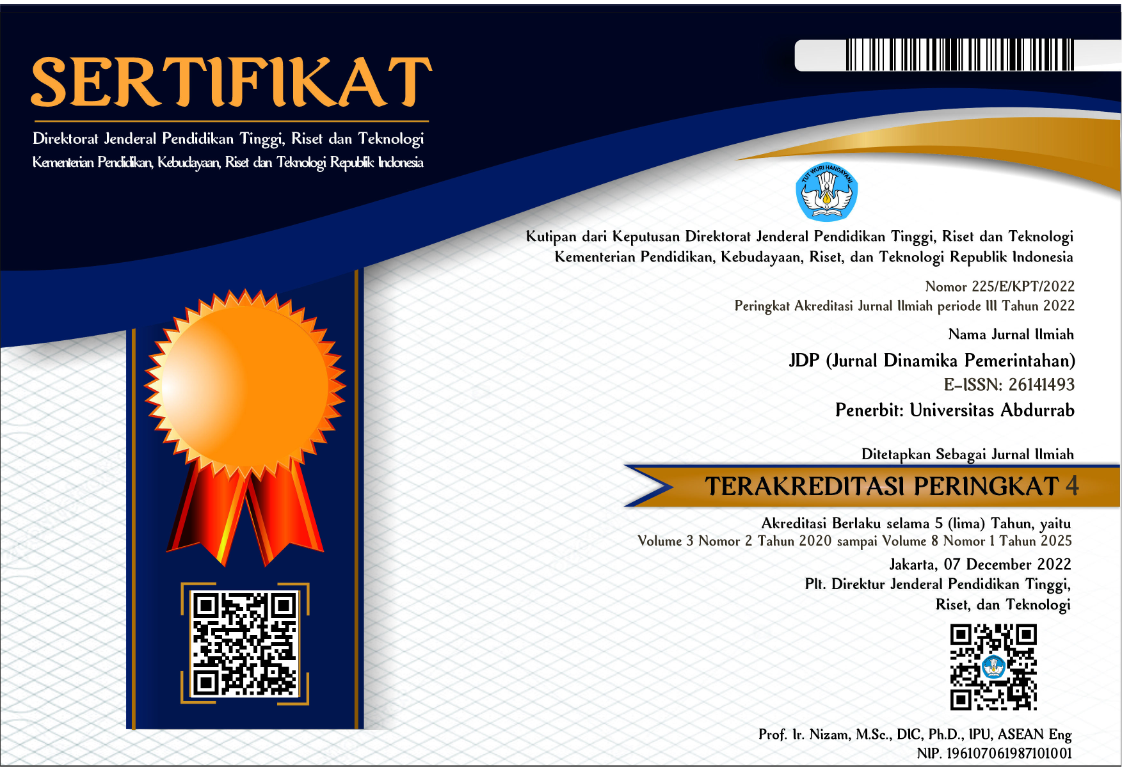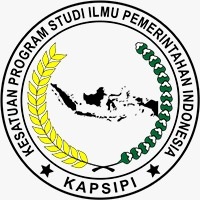Analisis Wacana “Pariwisata Muslim Friedly†Dalam Perspektif Politik Ekonomi Islam
DOI:
https://doi.org/10.36341/jdp.v5i1.1943Keywords:
Islamic economic politics, Halal tourismAbstract
This study analyzes the discourse of "Muslim friendly tourism" in the perspective of Islamic economic politics. The research method used in this study is a qualitative method using a critical discourse analysis approach. In addition, this study also uses the concept of 3 (three) paradigms in the perspective of Islamic economic politics as a knife of analysis, including; integralistic paradigm, secularistic paradigm, and symbiotic paradigm. This study concludes that the discourse of "Muslim Friendly Tourism" has led to conflicts in several regions in Indonesia. One of them is in North Sumatra. Basically, this happens, because the government as the policy maker and implementer cannot take a persuasive approach to the community. In addition, the discourse of "Muslim Friendly Tourism" is also more directed to the Symbiotic paradigm, because it emphasizes substance rather than a legal and formal state form. Due to its substantial nature (by emphasizing the values ​​of justice, equality, deliberation, and participation, which do not conflict with Islamic principles), this tendency has the potential to act as an approach that can connect Islam with the modern political and economic system, in where the state (nation state) is one of the main elements.
Downloads
References
Aan Jaelani. 2017. Industri Wisata Halal di Indonesia: Potensi dan Prospek, dalam Munich
Personal RePEc Archive (MPRA) Paper No. 76237, dimuat 17 January 2017.
Arif, Abd. Salam, ‘Politik Islam antara Aqidah dan Kekuasaan Negara’ dalam A.Maftuh
Abegebril, A. Yani Abevero, Negara Tuhan The Thematic Encyclopaedia,
Yogyakarta: SR-Ins Publishing, 2004.
A Mohsin, N Ramli, BA Alkhulayfi, “Halal Tourism: Emerging Opportunitiesâ€, Tourism
Management Perspectives 19 (2016)
CNN Indonesia, “Edy Rahmayadi Respons Polemik Wisata Halal Di Danau Toba,†2019.
Lihat: https://www.cnnindonesia.com/gaya-hidup/20190904205123-269-427610/edy
rahmayadi-respons-polemik-wisata-halal-di-danau-toba.
Crescent Rating, “The Global Muslim Travel Index 2019â€, https://www. crescentrating.com /
reports/global-muslim-travel-index-2019.htm
Fatwa Dewan Syariah Nasional Mejelis Ulama Indonesia No.108/DSN-MUI/X/2016 tentang
Pedoman Penyelenggaraan Pariwisata Berdasarkan Prinsip Syariah.
Geetanjali Ramesh Chandra, “Halal Tourism; A New Goldmine for Tourism,†dalam
International Journal of Business Management & Research (IJBMR), (T.K: T.P,
.
Gulen, F. (2011). Helal lokma ve iffetli nesiller (Halal bite and virtuous generations).
Retrieved from: http://www.herkul.org/kiriktesti/index.php?view=article& article_id
=4597.
Idealisa Masyafina dan Budi Raharjo, “Perda Wisata Halal Sumbar Rampung Tahun Ini,â€
Lihat: https://www.republika.co.id/berita/ekonomi/syariah-ekonomi/19/03/25/
poxcoz415-perda-wisata-halal-sumbar-rampung-tahun-ini.
Kasmarini Baharuddin, et.al., “Understanding the Halal Concept and the Importance of
Information on Halal Food Business Needed by Potential Malaysian Entrepreneurs,â€
dalam International Journal of Academic Research in Business and Social Sciences,
(T.K: T.P, 2015).
Kiki Safitri, “Sandiaga Uno Kampanyekan Pengembangan Pariwisata Muslim Friendlyâ€,
Lihat: https://money.kompas.com/read/2021/04/29/154548926/sandiaga-uno
kampanyekan-pengembangan-pariwisata-muslim-friendly
Masyhuri Machfudz, Analisis Pasar Pariwisata (Malang: tp, 2007)
Meizar Rusli, et.al., “Halal Tourism Destination Development Model,†dalam Journal of
Environmental Management and Tourism, (T.K: T.P, 2018).
Muchaddam Fahham, Achmad, (2017). “Tantangan Pengembangan Wisata Halal di Nusa
Tenggara Baratâ€. Jurnal Aspirasi, Volume 8 No1, hal 65-79.
Muhammad Djakfar. 2017. Pariwisata Halal Perspektif Multidimensi: Peta Jalan Menuju
Pengembangan Akademik & Industri Halal di Indonesia. Malang: UIN-Maliki Press
Undang-Undang Republik Indonesia No. 10 Tahun 2009 tentang Kepariwisataan.
Peraturan Daerah Provinsi Nusa Tenggara Barat Nomor 2 Tahun 2016 Tentang Pariwisata
Halal.
Wan Sahida Wan Zulkifli Suhaimi Ab Rahman, Yaakob Che Man, “Halal Friendly Tourism:
Capturing the Muslim Market,†in 3rd IMT-GT International Symposium on Halal
Science and Management 2009 Proceedings, December 21-22, (Kuala Lumpur: T.P,
Downloads
Published
Issue
Section
License
1. Copyright of all journal manuscripts is held by the JDP (Jurnal Dinamika Pemerintahan)
2. Formal legal provisions to access digital articles of electronic journal are subject to the provision of the Creative Commons Attribution-ShareAlike license (CC BY-NC-SA), which means that JDP (Jurnal Dinamika Pemerintahan) is rightful to keep, transfer media/format, manage in the form of databases, maintain, and publish articles.
3. Published manuscripts both printed and electronic are open access for educational, research, and library purposes. Additionally, the editorial board is not responsible for any violations of copyright law.
licensed under a Creative Commons Attribution-ShareAlike 4.0 International License.













